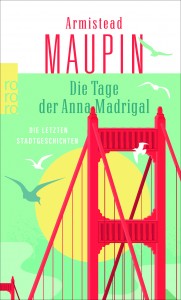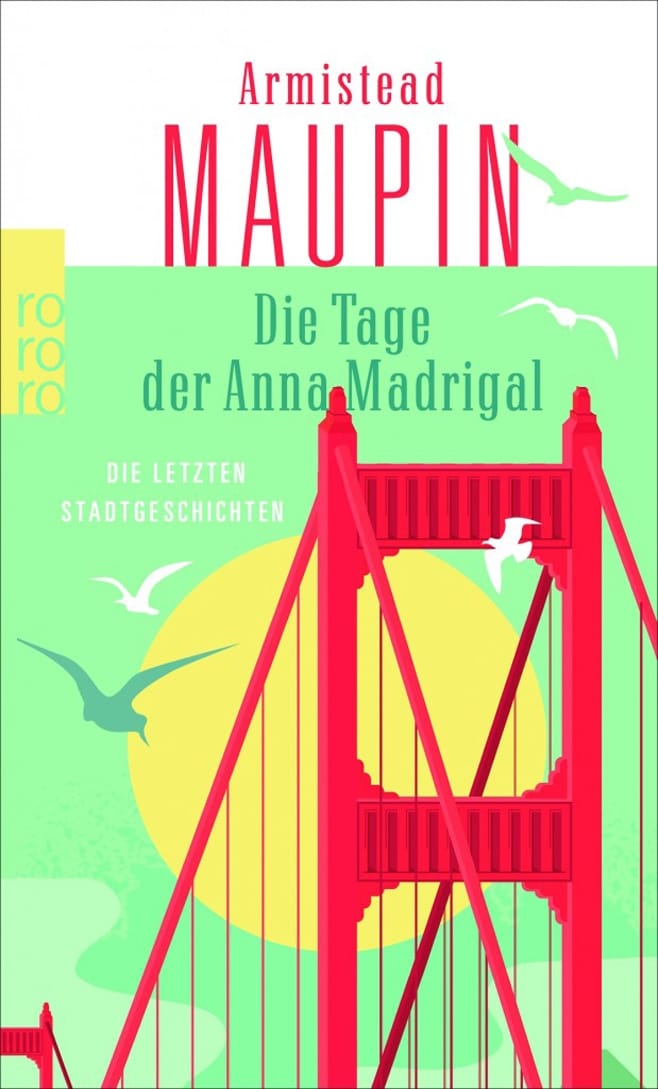Armistead Maupin's novel "The Days of Anne Madrigal" is the final farewell to the city stories from San Francisco.
So that's really it for the characters from Barbary Lane. Whatever the lives of Michael "Mouse" Tolliver, Mary Anne Singleton, Brian Hawkins and all the other characters will bring. Their creator Armistead Maupin doesn't want to tell us any more. The gay US bestselling author has spent half his life with this colourful, queer crowd. And they have become friends to readers all over the world. In these "city stories", originally begun in 1973 as a serialised novel for the San Francisco Chronicle, Maupin not only tells of singles and dropouts, of individual lifestyles and people in search of self-realisation, of stoners and conservative, eccentric people.
Over time, his cosmos has also become a social chronicle of his adopted home of San Francisco and, in particular, of queer life. From the very beginning, his books have followed the effects of the AIDS epidemic on the city and the community. In his sixth volume, Michael "Mouse" Tolliver, probably one of the most likeable gay characters in world literature, was also confronted with a positive test result.
Fates of the literary family of choice

Maupin, now 72, has now brought together the life stories and fates of this literary family of choice for what will inevitably be the very last time. Anne Madrigal is at the centre of the new and concluding volume. It was in her house in Barbary Lane that the stories of the town began. Even though the mysterious trans* woman was not only a landlady, kind surrogate mother and wise counsellor in all situations, but also a reliable supplier of home-grown marijuana. But after suffering three strokes, the 92-year-old now gets her hash on prescription and is lovingly cared for by the young trans* man Jake.
But San Francisco has also changed: The former hippie stronghold is now firmly in the hands of high-earning Silicon Valley careerists. Those who want to really let themselves go. - Those who want to cross sexual boundaries and experience alternative culture. These days, they head to the Burning Man Festival in the Nevada desert. It's no coincidence that Maupin has made this mammoth gathering of hippies, artists, musicians and visionaries one of the main settings of his novel. At the same time, there is a journey back in time to Madrigal's childhood and youth as the son of a madam in the small town of Winnemucca. On the other hand, you may find "The Days of Anne Madrigal" a little too talkative in places. But you have to hand it to Maupin: He certainly knows how to surprise his fans.
Cross-generational sex stories
Not only with how sensitively he tells of a hopeless gay love in the provinces in this retrospective. And the painful self-discovery of the trans* boy who would later become Mrs Madrigal. In addition to all the new side stories about lesbian motherhood, dating portals for trans* men and cross-generational sex stories, episodes from the previous volumes once again come together to form a puzzle. Of course, we won't reveal how here, just like the heart-wrenching conclusion. But a warning to all those lucky ones who are hearing about Armistead Maupin's novel series for the first time: You have some great fun ahead of you. But also beware: these urban stories are addictive!
Armistead Maupin: "The days of Anna Madrigal. The last stories of the city". Translated from the American by Michael Kellner. Rowohlt Taschenbuch Verlag, 336 pages, 10.99 euros.
The first 8 volumes are also available in the Rowohlt publishing house published.

Read more: Book recommendations in ICHWEISSWASICHTU-Blog










